The Public Health Reporting Corps is a group of international journalists dedicated to investigating and documenting systemic health challenges and solutions cooperatively. Under the Reporting Corps program, fellows are trained to collaborate on and co-report stories for increased depth and reach and are given unique and extensive access to experts and sources across geographies and sectors. The program also provides mentorship, funding, and coaching for independent media.
Supported by the John D. and Catherine T. MacArthur Foundation, the Public Health Reporting Corps will center activities during its premier reporting cycle (2022-23) on health equity and COVID-19 recovery, digging deep to understand the twin challenges of health misinformation and vaccine hesitancy and the social and systemic realities that underly them. The inaugural fellow cohort includes journalists from India and Nigeria, two of the world’s fastest growing nations.
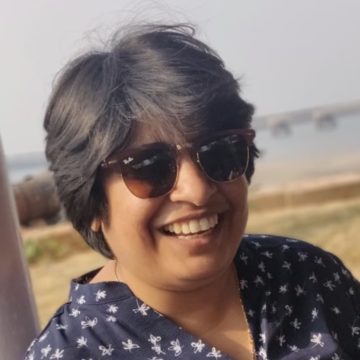
Sumitra DebRoy
Sumitra DebRoy is a health journalist with more than 17 years of experience across India’s leading newspapers. She is currently senior assistant editor with the Times of India, where she has extensively covered the COVID-19 pandemic and highlighted the unprecedented challenges faced by the health systems in Mumbai and the Maharashtra state. Prior to this DebRoy worked as a special correspondent for Daily News and Analysis (DNA); she started out as a journalist for the Hindustan Times. DebRoy co-authored a book titled “Mumbai Fights Back” that chronicles the city’s battle with COVID-19. In 2014 she won the REACH Media Award for her story on high incidence of multidrug-resistant tuberculosis among children in Mumbai, and she has participated in fellowships with the International Center for Journalists (ICFJ), UNICEF, the International Reporting Project, and the Global Investigative Journalism Network (GIJN). She holds a postgraduate degree in journalism from the Asian College of Journalism in Chennai and a bachelor’s in political science from Lady Brabourne College, Calcutta University. When not chasing deadlines, she likes to cook and watch war movies and spy thrillers.
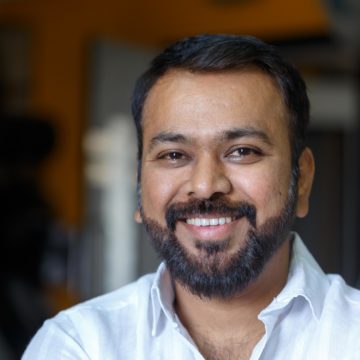
Abhijeet Gurjar
Abhijeet Gurjar is an independent visual journalist and multimedia storyteller whose work has appeared in various international outlets, including The Times (U.K.), The Wall Street Journal, BBC, LaCroix International, Mongabay, The Hindu, The Wire, Reuters, and Firstpost. In addition, Gurjar works on personal projects such as “Sisters of Hope,” about accredited social health care activists (ASHAs), which was featured in PhotoWalkSeattle in 2021. Gurjar was awarded a Photo SouthAsia grant in 2020 and participated in the 2021 FotoEvidence Workshop in France. He was a finalist in the portrait competition at the Indian Photo Festival and was selected for a portfolio review by the National Geographic editorial team, both in 2020. He was also the local producer for a grant-winning feature about forced hysterectomies among migrant sugarcane laborers in India’s Beed district that exhibited at the Visa pour l’Image International Festival of Photojournalism in 2021. Since 2021, Gurjar has taught photography for a postgraduate program at Shivaji University, where he is also a mentor for the documentary photography program. Gurjar holds degrees in mechanical engineering from T.B. Girwalkar Polytechnic and in journalism and mass communication from Yashwantrao Chavan Maharashtra Open University.
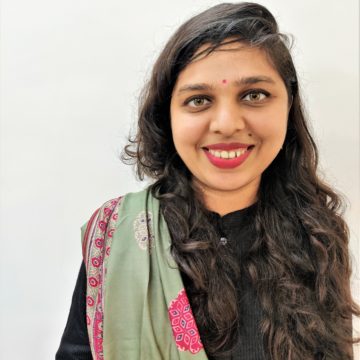
Mahima Jain
Mahima Jain is an independent editor and science journalist based in India. She covers gender, environment, health, and socioeconomic issues. Her work has appeared in The Guardian, BBC, the Fuller Project, Foreign Policy, and other publications in India and around the globe. She was a finalist for the Thomson Foundation Young Journalist Award 2021, the Mumbai Press Club REDINK Award 2021, and the Society of Publishers in Asia (SOPA) Awards 2022. Her work received a special mention at the One World Media Awards 2022 and won a United Nations Population Fund (UNFPA) Laadli Media Award. She has also received several fellowships and grants. Explore her work at mahimajain.in.
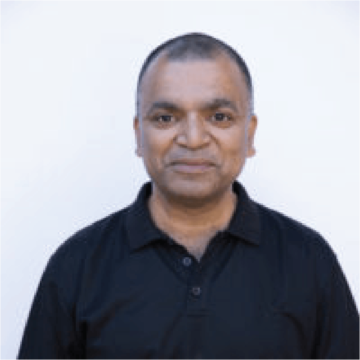
Bobby Ramakant
Bobby Ramakant is editor at Citizen News Service (CNS), a newswire focused on health and development justice. Through CNS, his work has appeared in The Lancet, Bangkok Post, The Jakarta Post, The Manila Times, and The Nation (Thailand), among others. He also writes regularly via CNS for Hindi print and online media. Ramakant is also a science writer for NAM-aidsmap UK. He has written extensively on HIV, tuberculosis, noncommunicable diseases, health risk factors, and corporate accountability. He holds a bachelor’s degree from the University of Lucknow in India and completed a certificate course in editing from the Academy of Literary Arts and Publishing Singapore. Ramakant was part of the SEA-AIDS and Stop-TB forum moderation teams and was key correspondent with Health and Development Networks (HDN). Ramakant was awarded the World Health Organization’s Director General’s Award in 2008 and the Falling Walls Science Fellowship for Journalists in 2013. He sits on the board of directors of Corporate Accountability, based in Boston, as well as the program committee of the 2023 World Conference of Science Journalists (WCSJ).
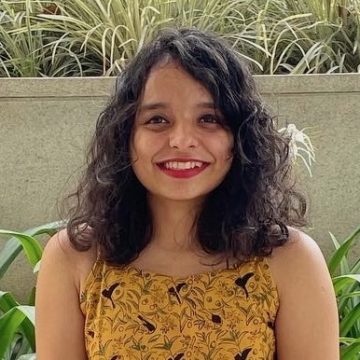
Shreya Raman
Shreya Raman is an independent data journalist reporting on gender, health, and public policy. She previously worked as a journalist for IndiaSpend and Mirror Now (India). In 2022 she won the Likho Award for Excellence in Media and worked on a story series that was shortlisted for the Sigma Awards for data journalism. She received a Global Nutrition and Food Security Reporting Fellowship from the International Center for Journalists (ICFJ), a Spotlight Media Fellowship, and a Tableau Equal Measures 2030 Fellowship. She holds a postgraduate degree in print media from the Asian College of Journalism and a bachelor’s degree in mass media from Bhavan’s College, Mumbai University.
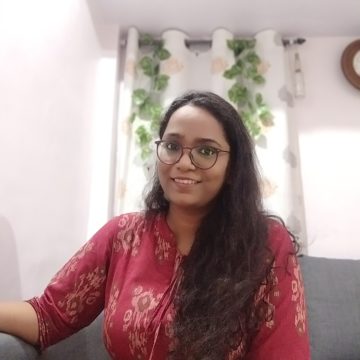
Anagha Sawant
Anagha Sawant is a Mumbai-based senior sub-editor with Mid-Day. She has more than six years of experience with print and digital media platforms, where she has covered stories on public health, education, and social and development themes. At Mid-Day, Sawant reports on public health, social issues, and general news across Mumbai and Maharashtra. She previously worked as a correspondent with Daily News and Analysis (DNA) in Mumbai covering public health and community. Sawant holds a postgraduate diploma in print journalism from the Indian Institute of Journalism and New Media, as well as a bachelor’s degree in mass media from the University of Mumbai. In her spare time, she likes to work on art projects.
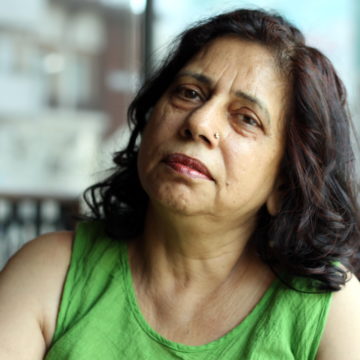
Shobha Shukla
Shobha Shukla is the founding managing editor and executive director of Citizen News Service (CNS), a citizen journalism initiative focused on health and development justice. She has been coordinator of the Asia Pacific Media Alliance for Health and Development (APCAT) since 2019. She has written extensively on epidemics, noncommunicable diseases, and systemic health challenges, with a focus on gender justice and aging populations. Shukla’s work has appeared in a range of publications via CNS, including the Bangkok Post, the Jakarta Post, Manila Times, The Nation (Thailand), Weekly Blitz Bangladesh, Indian Express, Kashmir Times, Outlook Afghanistan, The Independent (Nigeria), The Seoul Times, Maravi Post (Malawi), and Modern Ghana, among others. She also writes regularly via CNS for Hindi print and online media. She has received a number of awards and fellowships, including from the International AIDS Society and the National Press Foundation in the United States. She has led training for journalists about health reporting in India and abroad and has worked with a range of nongovernmental organizations to promote health learning and reporting. She holds a master’s degree in statistics and a bachelor’s degree in physics, math, and statistics from University of Lucknow in India and a certificate in copy and structural editing from the Academy of Literary Arts and Publishing in Singapore.
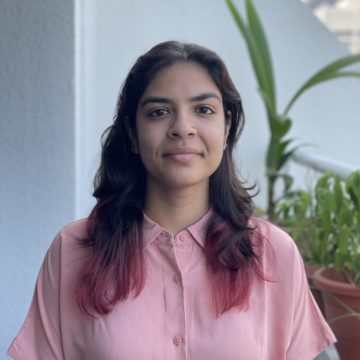
Aradhna Wal
Aradhna Wal is an independent journalist from New Delhi. She has covered health, science, politics, gender, caste, and culture for print and online publications. She gravitates toward longform stories on social inequity to create a better understanding of how state policy impacts people’s lives. Wal received the Earth Journalism Network’s Asia-Pacific Story grant in 2021 to report on zoonotic diseases in tribal regions of Odisha, a state in eastern India, in the wake of environmental changes. In 2019 she was awarded the inaugural Investigative Reporting in Public Health grant by the Thakur Foundation to cover mental illness in farming communities in rural Maharashtra, including local and community interventions and government projects to reduce farmer suicides. She has written for Scroll, The Caravan, IndiaSpend, and The Signal, among other outlets. Before she started freelance work, Wal was a health and news features reporter with the online news site News18 and for the national outlet Daily News and Analysis (DNA). She covered the Ministry of Health and Family Welfare, hospitals, and scientific research.
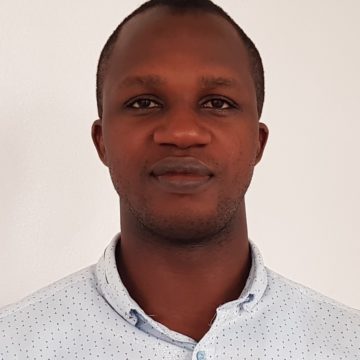
Babatunde (Tunde) Ajaja
Babatunde (Tunde) Ajaja is a journalist with PUNCH Nigeria Limited, publisher of PUNCH newspaper, Saturday PUNCH and Sunday PUNCH titles, in addition to PUNCH Online. Ajaja began his journalism career in 2014 with the goal of using his writing skills to further good governance and national development, having always believed in the ability of the press to drive societal change. Ajaja has received a number of awards for his work, including Print Science Journalist of the Year in 2021 and 2016 from the Nigerian Academy of Science; Power Reporter of the Year, Insurance Reporter of the Year, Agriculture Reporter of the Year, and Maritime Reporter of the Year under the Nigerian Media Merit Awards; and Business and Economy Reporter of the Year under the PwC Media Excellence Awards in 2020, among others. He is passionate about his work as a journalist and enjoys reading and traveling in his leisure time. He is a graduate of the Federal University of Technology Akure, Ondo State, Nigeria.
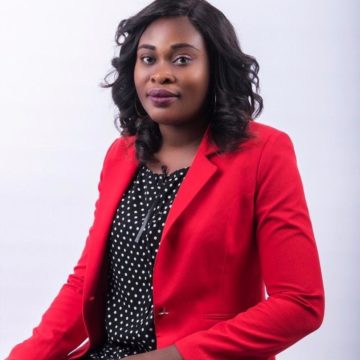
Ojoma Akor
Ojoma Akor works for Media Trust Limited and is health editor of Daily Trust, a national daily newspaper in Nigeria. Previously she worked as a reporter covering gender and health for the same outlet, and as an English and literature teacher. Akor has received fellowships from the International Women’s Media Foundation’s Global Health Reporting Initiative, the International Center for Journalists’ (ICFJ) Global Nutrition and Food Security program, and the International AIDS Society. She has received a number of awards for health and science reporting including the Merck Foundation’s “More Than a Mother” 2021 Africa media award (West Africa print category) and a Merck/African First Ladies “Stay At Home” media recognition award. She holds a master’s degree in mass communication from Benue State University, Makurdi, and a bachelor’s degree in mass communication from Kogi State University, Anyigba.

Jesupemi Are
Jesupemi Are is a journalist with TheCable, one of Nigeria’s leading independent newspapers. She began her journalism career as a graduate intern with Cable Newspaper Journalism Foundation (CNJF) in 2020 and has since become a health reporter for the outlet. Her work has also appeared in The Guardian newspaper. Are is passionate about debunking health misinformation and simplifying public health issues in relatable terms. She was one of 20 journalists trained by the Federal Ministry of Health, Nigeria, under its National Tuberculosis and Leprosy Control Program. Are holds a bachelor’s degree in industrial chemistry from Achievers University in Owo, Nigeria, where she graduated at the top of her class.
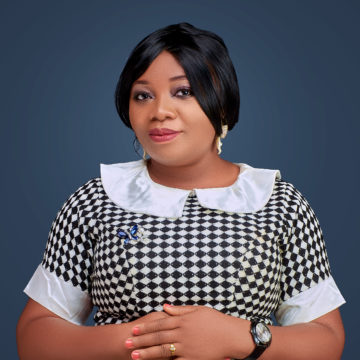
Anibe Idajili
Anibe Idajili is an independent Nigerian journalist whose work centers on the human cost of poor health care and has appeared in TechCity, TheCable, TechNext, She Leads Africa, BeFantastico, African Women in Media, YaLa Africa Press, Sabinews, and the Ebedi Literary Journal. Idajili has been a fellow with Voices for Change, WanaData-GMMP, and the African Academy for Open Source Investigation, as well as first runner-up at the African Women in Media’s 2020 Pitch Zone Awards. Her work on vaccine hesitancy for the Internews Health Journalism Network in 2021 explored conspiracy theories in Nigeria and how religion can be used to stoke unfounded fears about vaccines, a topic she hopes to explore more deeply through PRB’s Public Health Reporting Corps program.

Rita Okonoboh
Rita Okonoboh is a news editor with TheCable. She was previously a news editor with Sahara Reporters and a senior reporter for the Nigerian Tribune, among other roles. Okonoboh holds master’s and bachelor’s degrees in English, both from the University of Ibadan in Nigeria, and is currently a doctoral candidate at the university, focusing on the intersections between literature and medicine. She uses her love of reading, editing, and writing in both professional and personal contexts, evident in her large collection of literary texts, including favorites in the genres of social development and narrative horror. Believing in the possibility of making positive differences one day at a time, Okonoboh gets daily inspiration from the words of author Jojo Moyes: “You only get one life. It’s actually your duty to live it as fully as possible.”
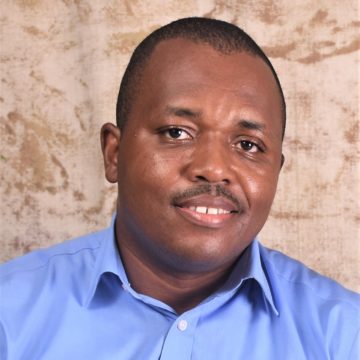
Allwell Okpi
Allwell Okpi has worked as a journalist since 2008, covering a wide range of topics such as the environment, politics, and sports. He is currently a researcher and community manager for Africa Check, where he monitors the media in Nigeria and conducts fact-checking and analysis to reduce the spread of misinformation around public health and development. He has facilitated dozens of fact-checking and verification training sessions, including for journalists covering the COVID-19 pandemic and other disease outbreaks. Prior to joining Africa Check, Okpi was a reporter and editor at NEXT and PUNCH newspapers. He also oversaw content development for leading strategic communications consulting firms in West Africa, including C&F Porter Novelli and Chain Reactions Nigeria. Okpi has a master’s degree in marketing and communication from Rome Business School; a bachelor’s degree in geology from the Federal University of Technology Minna; and certificates in digital journalism from Reuters, in public relations from the Metropolitan School of Business and Management (U.K.), in persuasive writing and public speaking from Harvard University, and in leadership from Kwame Nkrumah University of Science and Technology, Ghana.
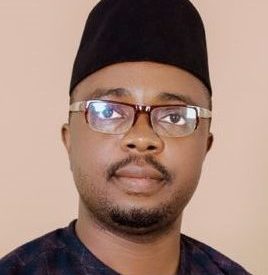
Kolawole B. Omoniyi
Kolawole B. Omoniyi is a seasoned journalist who currently works as news manager for Steam and Globe Broadcasting Limited, owner of Cool FM, Wazobia FM, and Arewa Radio in Nigeria. He has more than 13 years of experience in investigative reporting, news gathering and editing, and political and public affairs analysis on flagship radio programs. He has also held consulting roles for nongovernmental organizations on media development projects. A number of Omoniyi’s investigative and community development stories have helped trigger government interventions and behavioral change across communities in northern Nigeria. Omoniyi holds a master’s degree in public relations and a post-graduate diploma in mass communication from Bayero University in Kano State, Nigeria, as well as a higher national diploma in mass communication from Osun State Polytechnic, Iree. He received an award from UNICEF for remarkable support of polio eradication and routine immunization in Kano State in 2018 and secured a Child Rights Media Advocacy Fellowship, 2019 cohort, championed by YouthHubAfrica through the Malala Fund, as well as a health reporting fellowship from the International Centre for Investigative Reporting in 2022. Omoniyi is from Osun State, Nigeria, and is currently based in Kano State.

Yecenu Sasetu
Yecenu Sasetu is a news reporter with 99.9 Kiss FM, a radio station in Abuja, Nigeria. She primarily covers health, a topic she is passionate about. She is producer and presenter of “The Clinic,” an award-winning program for which she has covered reproductive health; malnutrition; maternal and child mortality; and water, sanitation, and hygiene (WASH), among other topics. Sasetu pursues untold stories and has covered hard-to-reach communities in Nigeria. She believes accurate information can help people make informed decisions about their health and influence health-seeking behaviors. Prior to joining Kiss FM, Sasetu worked as a journalist for Change Media, Vision FM, and Nasarawa Broadcasting Service and as part of the media team at the Ebonyi State Council for Arts and Culture. She holds a bachelor’s degree in theater arts from the University of Jos, Plateau State.

Ode Uduu
Ode Uduu is a data journalist and research analyst for Dataphyte in Nigeria. He specializes in using basic statistical tools to simplify large data and design data visualization for easy interpretation by broad audiences. Uduu believes that data and analytical skills are not only a fundamental part of research, but can enhance journalism by making connections, providing insights, and contextualizing events. He uses analytical skills to provide insight and data analysis in his articles. He has attended several trainings over the last two years on health, climate change, environment, and fiscal issues and has reported regularly on these topics. Uduu holds a bachelor’s degree in economics from Benue State University, Makurdi, Nigeria.

Jennifer Ugwa
Jennifer Ugwa is an independent investigative reporter based in Abuja, Nigeria. Her stories on rights violations of internally displaced persons, corporate tax evasions, and environment and climate justice have been published by the Women’s Media Center, the International Centre for Investigative Reporting, and ClimateTracker, among other platforms. Ugwa is passionate about under-reported stories on public health that have the capacity to spur policymakers to improve the lives of Nigerians. She is a recipient of several local and international journalism fellowships including with the FinanceUncovered Money Trail Project, the Tiny Foundation Fellowships for Investigative Journalism by the University of British Columbia, the Code for Africa Water Reporting Fellowship, and the Institute for War and Peace Reporting COVID-19 fact-checking program.
